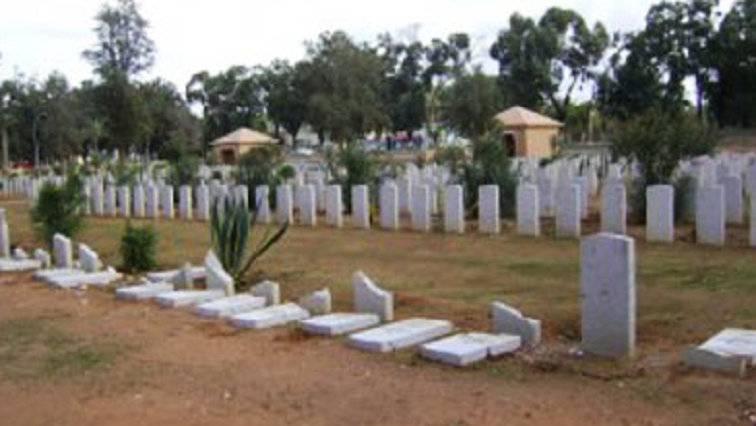The death toll linked to the COVID-19 pandemic in South Africa has not reached 100 yet, but warnings have already been voiced about the calm before the storm.
The spread of coronavirus infections has already prompted a number of changes to our daily lives, including how communities conduct funerals.
But the changes made for funerals might even be further removed from what we have known. The demand for burial space can very likely outstrip the supply as cities are preparing for the worst.
“As the municipality, we do have land that we have identified but we are not there yet, because we don’t have high numbers as yet that will lead to mass burials. But when we get there, we will organise and make sure we separate those sections to bury those people,” says Member of the Mayoral Committee for Public health in Nelson Mandela Bay, Yolisa Pali.
As things stand, there are 90 COVID-19-related deaths in South Africa.
The Western Cape has the most number of COVID-19 cases in the country with 1 737 cases. The province has 35 deaths and 236 recoveries. Gauteng currently has 1353 cases.
The total number of cases in South Africa is 4 793.
More than 170 000 tests have been conducted.
Below is a graphic with the latest COVID-19 stats in SA:

Loading…
The Nelson Mandela Metro has 11 cemeteries, but space for burials is running out.
The SA Cemeteries Association says a rapid increase in deaths will place the cremation sector under tremendous pressure.
Its chairperson Pepe Dass believes that cremation is the recommended method of treatment for bodies infected by COVID-19.
“We also have been advised that if the municipality was experiencing a really large number of deaths, there are alternative methods for digging graves. Given the fact that resources may be strained due to lockdown, so we made the proposal of mass graves.”
However, mass burials will be new and don’t go down well with many people.
Director of Icamagu Institute, Dr Nokuzola Mndende, believes communities should go back to old ways.
“Although the government is doing this to stop the spread of the virus, it is also helping families to save money too as all these foreign intruders are forcing families to spend money because of expensive coffins and all the other things that are done prior to the funeral. I wish that our indigenous people can keep them, so that funerals can go back to the dignified ways our forefathers used to do a funeral.”
This issue is also a hot talking point.
“For us, things such as funerals are not as personal as other cultures. We normally do cremations and a memorial service with very few people. So, although death is painful, we see it as a passage to another life and how people are buried is not a huge dilemma,” says one resident of Nelson Mandela Bay.
“I understand where they are coming from and the rationale behind it. But if I had to bury a loved one in a mass grave, it would hurt so much. Burials are such a personal thing, where we want a proper tombstone so that we can visit and talk to them as and when we want to,” added another one.
The South African Cemeteries Association has proposed that funerals be conducted during the week to prevent mass gatherings.
To date, there are over 212 000 deaths all over the world out of more than three million infections. There are close to a million recoveries recorded so far around the world.
Below is a Live Tracking of the cases, death toll and other information, updated daily:






